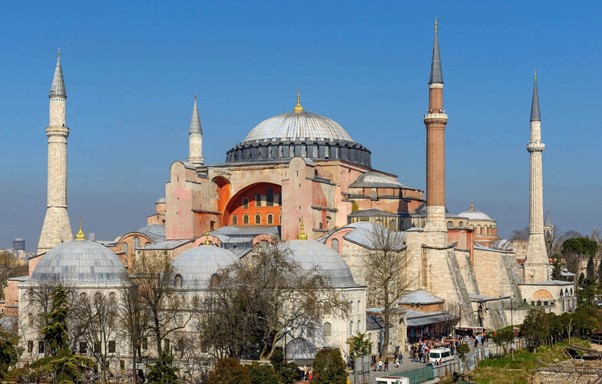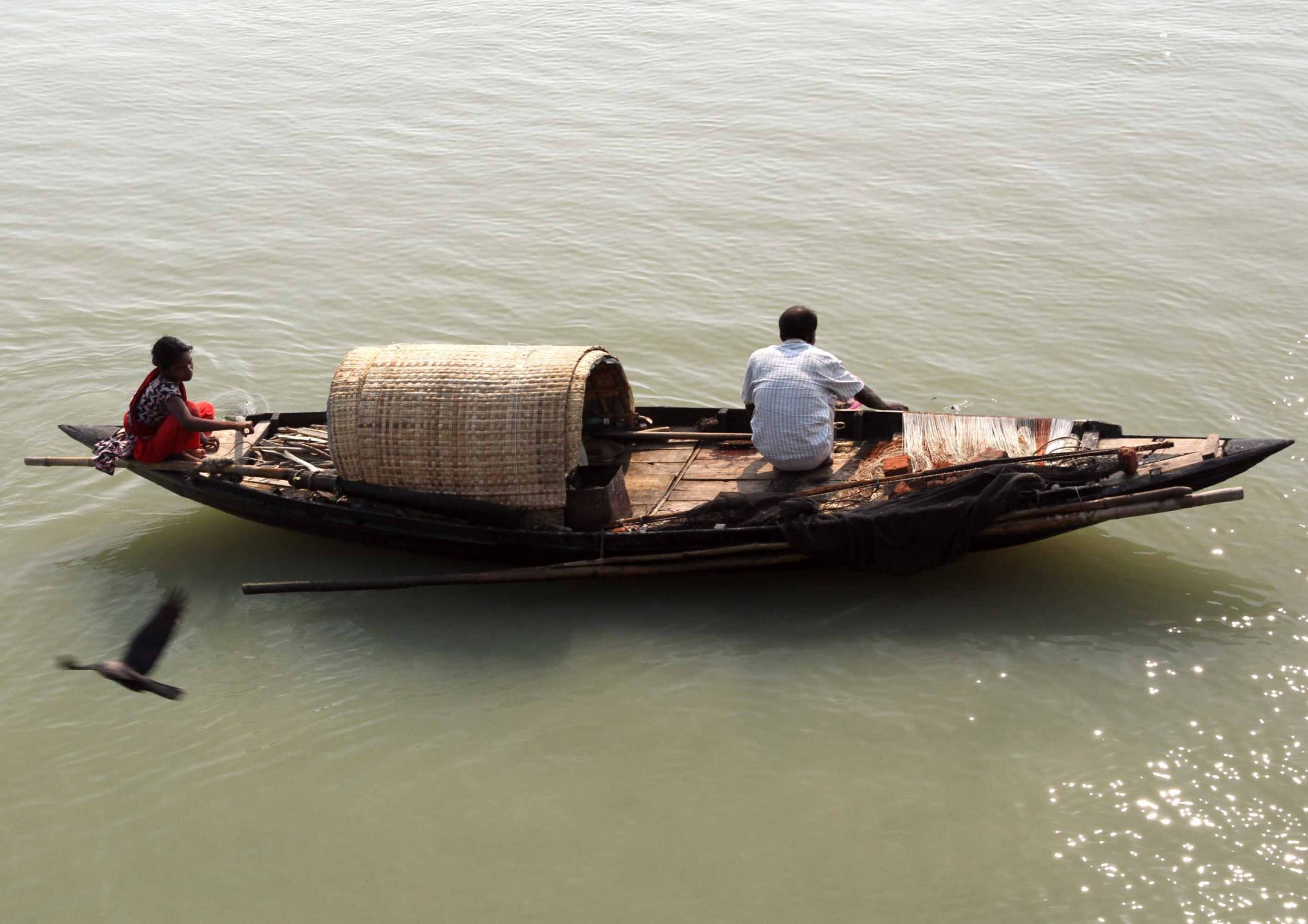
A decree was signed by Erdogan on 10 July 2020 to ‘re-convert’ the Hagia Sophia into a mosque, following the ruling by a Turkish court to annul the decision made by Kemal’s Ataturk’s cabinet in 1935 to convert the building, which was a mosque for nearly five hundred years, since around 1453 when Constantinople was conquered by the Ottoman Sultan Mehmed II. Before that, it was a Christian Cathedral for most of the time under the Byzantine Empire (or Eastern Roman Empire) since it was built in the early 6th Century AD, although changing hands several times between different Christian denominations – Roman Catholics and Greek Orthodox. The court’s ruling was based primarily on the idea that Kemal Ataturk and his cabinet had no legal authority under Turkish law to convert the then mosque – which had a particular legal status – into a museum by a political decision.
Naturally and understandably, following the court’s ruling and Erdogan’s signed decree for the implementation of the reconversion verdict, both social and mainstream media got engaged in fierce debates on the merits and demerits of the issue. On the Muslim side, there are both for and against the reconversion decision although it seems that the level of support expressed openly for the reconversion decision outnumbers, by far, those who hold that this was a wrong move and bound to be counter-productive. On the non-Muslim side, mostly regrets have been expressed and some condemnations delivered, including Greek authorities threatening sanctions and already taking some symbolic actions to show their displeasure.
So, what do I think about the ‘reconverting’ of Hagia Sophia into a mosque? First, I want to point out that I knew very little about the Ottoman Empire and its history until recently, and my knowledge on the topic is still very limited. As a result of a recent increase in interest in Muslim history, I read several books and watched a few documentaries and all the episodes of two Netflix dramas: Dirilis Ertugral and Ottoman Empire, the latter being the story of Sultan Mehmed II’s conquest of Constantinople in 1453. I have never been to Turkey before or seen the Hagia Sophia Museum in person. So, my actual knowledge of the context and legal arguments concerning the reconversion decision is near zero. However, on this, I do have a moral and practical position.
Until recently, we lived in the age of empires and the rule of the powerful. Although on paper this era had ended after the collapse of the British, French, Dutch, Russian and Portuguese empires, the rule of the powerful still exists in many ways. All empires have positive and negative legacies – you can find all of them doing some good things while undertaking many bad and evil actions/decisions – some excelling others in the scale of good and bad deeds. It is easily possible to identify the most-evil empires in terms of human sufferings, land and wealth thefts, genocide and displacements. In terms of the Ottomans, although one can find many positive and inspiring acts, impressive developments and achievements, the Turkish conquest of countries inhabited by others was achieved through bloodshed and the brutal control of lands and the populations they conquered – in Greece, Bulgaria, Armenia, Serbia, Arabia, North Africa and so on.
When nationalist sentiments developed during the 19th and 20th centuries, colonised and dominated groups everywhere revolted against the rules of empires, domination and exploitation, including those under Turkish rule – not as in the previous time when leaders tried to overthrow other leaders to establish their own new dynastic rules but as national efforts to liberate, what they considered, their people and country from foreign rule. As a Bangladeshi Muslim, I understand the sadness and humiliation that all dominated people feel because I have the same feelings with respect to what the British did to my country, over a period of 190 years, that left a legacy of poverty, illiteracy, economic mess, communal divisions, destructive narratives and historical interpretations, linguistic fascism and so on. But what the British did to Bengal and particularly in impoverishing the eastern part, which is now Bangladesh, pales into insignificance compared to what they did in Australia, New Zealand and America. The Pakistan period which ended after the brutal military crackdown on the people of East Pakistan in 1971 and the nine-month freedom struggle by the people have developed in me a deep sense of what is right and wrong when it comes to the powers of the strong and the powerlessness of the weak.
In the above section, I have provided some context to my views on the recent developments and controversies in Turkey concerning the Hagia Sophia conversion decision. Now with respect to Turkey, an argument used by the court support its decision was based on the idea that as Sultan Mehmed II legally bought the Hagia Sophia cathedral from the Christians after his conquest of Constantinople, it was up to him to decide what to do with the property, and as such he exercised that right by transferring the ownership and control of the building to a Waqf Trust. Therefore, it was not up to Kemal Ataturk to utlise the mechanism of a cabinet decision to turn the mosque into a museum: it was an illegal decision in 1935.
History is littered with legal documents obtained through forced signatures under duress. We know about many more such documents from the western empire-building process and settler colonisation because they did more in this regard than any other groups in history and have kept good records to make and defend claims to overseas possessions against each other. An early example is the European struggle during the early 17th Century, between the Dutch and the English, to control the spice islands in present-day Indonesia. The much stronger Dutch forces coerced the weaker Bandanese islanders to agree to their demands in the form of official agreements, which, in effect, involved the latter signing away their independence and rights. This was done completely under duress, and European style agreements were completely alien in early 17th Century South East Asia. The Dutch then utlised the pretext of the terms in the agreements, using bewildering legal arguments, to strictly enforce terms which the native islanders did not understand fully, in order to promote their interest. This eventually, within a short time, led to what happened in the Banda Islands in present-day Indonesia when the Dutch massacred nearly the entire population, starting with the execution of more than forty of their leaders under the pretext that they violated the agreements they signed and the specific violation carried a capital punishment requirement. Although the stronger parties usually use this kind of tricks to promote their interest it does not mean that we should accept them as valid, morally and rationally speaking. Do you think that when the conquering armies of Mehmed II took the city of Constantinople after months and years of fighting, wasting much blood and money, the conquered people who remained there would have been in a position to make any sound, considered, balanced and voluntary decision?
Another argument is used to justify, at least psychologically, by pointing out that in Spain and the Balkans many mosques were destroyed and converted into churches and cathedrals. This is of course true but it does not justify reconverting a building that has been a museum into a mosque just because it was a mosque before it was converted into a museum by force through Ataturk’s cabinet decision in 1935. Had it not been a Christian Cathedral for nearly one thousand years, then it would have been an easy matter to justify the recent reconversion decision. I know that many Muslims in Turkey and outside the country feel very sad, angry and outraged at what Kemal Ataturk did in 1935 when he closed the mosque for worship, which has been a place of Muslim worship for nearly five hundred years, and they have been waiting for the building to be reconverted into a mosque. Their feelings are strong and many of them are celebrating this victory after nearly a century of the wait. Equally, there are many Christians in the world, especially in the region, who feel hurt at this decision, and many non-Muslims who fought hard over the years to support Muslims against Islamophobia and challenge the ideology behind its growth feel bewildered and a sense of powerlessness when it comes to making further efforts in challenging prejudice against Islam and Muslims. Many Muslims also feel embarrassed and outraged, and they do not know how to respond to certain long-standing allegations made against Islam and Muslim history by hostile individuals and groups, the power of which is likely to increase and intensify because of this Turkish reconversion decision.
However, making decisive, strong decisions by strong leaders when things are not clear cut and people divided, can and often does leave bad legacies for other people – current and future generations – to deal with, and the impacts of certain such decisions on communities and groups can be very serious and perpetuating. Just as the decisive decision of strongman Kemal Ataturk back in 1935 left a bad legacy without resolving the issue, I am certain that this decision by an equally hard man Recep Tayyip Erdoğan – to reconvert the Hagia Sophia into a mosque – will cause unnecessary pain, irritating distraction and endless controversies for a long time to come.
omgamuslim
I cannot understand the furore. I am against places of worship belonging to members of one religion being forcibly taken over by members of another.But in this case a museum is reverting to its previous use. So what’s the problem? In the UK can be seen many disused/ surplus to requirement church buildings converted and put to use for any number of purposes including even the use as mosques or mandirs. No one sees any problem there! Was Hagia Sophia surplus to requirement when the Sultan purchased it, was it sold off voluntarily and was it sold by people who had the right to sell? Any way what happens to a religious edifice when the confessional membership that require it becomes nonexistent or much reduced? What happens when the confessional membership converts to another religion? Are they not within their rights to continue to make use of the places of worship they used prior to their conversion?
